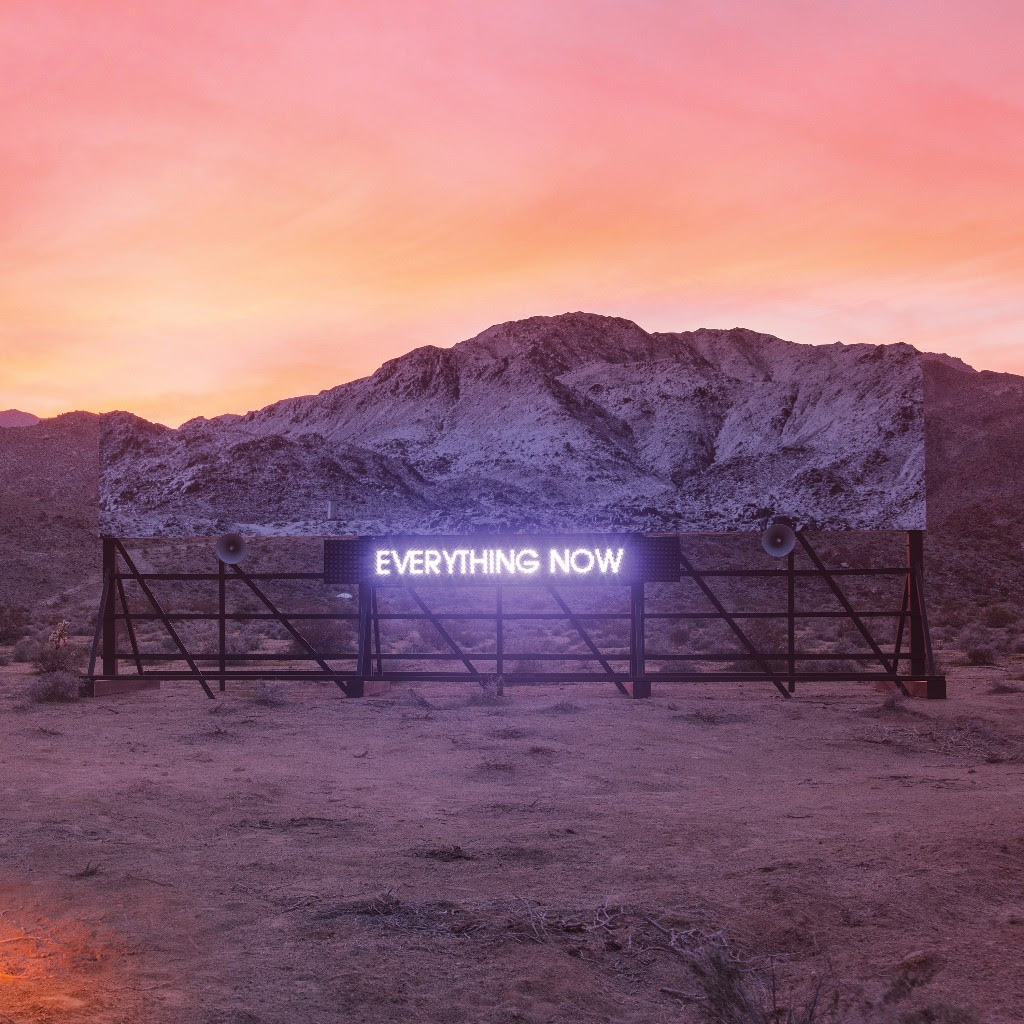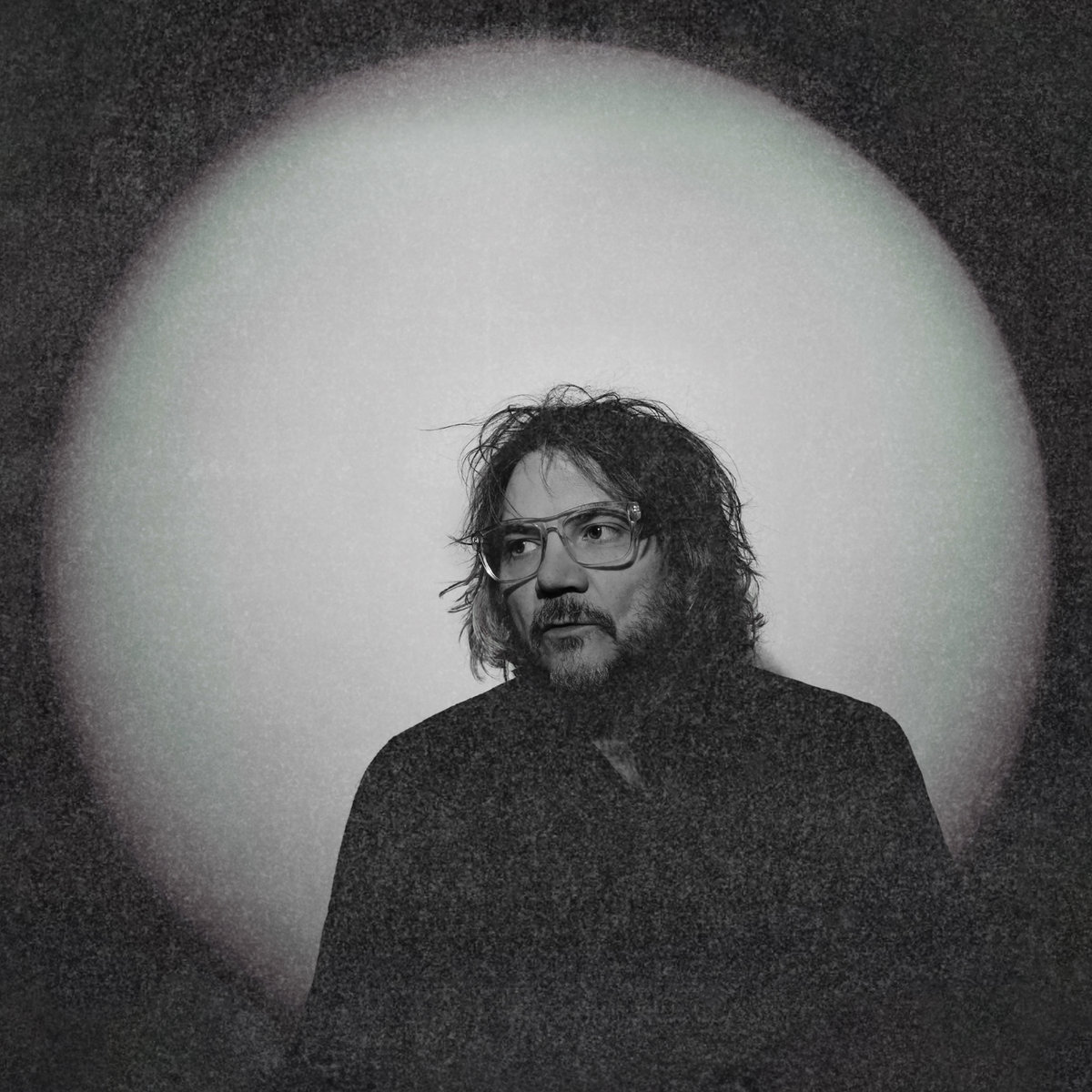Arcade Fire have always made dance music. Consider "Neighborhood #3 (Power Out)," the most crushingly heavy relic of the disco-punk era. Recall "Ready To Start," a propulsive rock song that never fails to get bodies moving. Behold the new wave glories of "Sprawl II (Mountains Beyond Mountains)" and "Black Wave/Bad Vibrations." What do you think happens when people get to the final section of "Wake Up," when the clouds clear away and the sunlight comes streaming through and an elven victory parade breaks out? They dance! They dance joyously and shamelessly, with every last limb.
The band has not trafficked exclusively in dance music, of course. Since their inception, Arcade Fire have been universalists with enough widespread appeal to unite a vast coalition of listeners, win a Grammy for Album Of The Year (a first for a release on an independent label), and headline festivals as a rock band at a time when festival-headlining rock bands are becoming an endangered species. Their discography contains multitudes, albeit painted in broad strokes.
They're best known for arena-rock epics owing to U2, Springsteen, and Radiohead, and that's what they do best by far: big songs designed to communicate bigger ideas and emotions in humongous spaces. Part of their initial rhapsodic appeal was their ability to lay bare their bleeding hearts in an indie rock ecosystem ruled by sarcasm and obfuscation. They were a beacon of genuineness slicing across a largely self-protective landscape, and the approach didn't lose its potency as they scaled up from clubs to theaters to arenas, nor as they grafted in bits of punk, country, Haitian party music, and whatnot. Their albums addressed massive subjects -- familial love and loss, the dead spirituality of an America poisoned by television, the emptiness of suburban life -- with a boldfaced ambition that could turn any cliché into a rallying cry. To encounter them live on stage was to be swept away.
This is why the reinvention that began on 2013's Reflektor and continues on the new Everything Now feels somewhat wrongheaded. No one should begrudge one of the most popular bands in the world for trying new things; what else are they supposed to do after pushing their original template to the limits of transcendence? If they'd followed up Funeral, Neon Bible, and The Suburbs with another album in the same mold, they'd have been accused of creative stasis. Great artists take risks. But ideally those risks pay off in music every bit as satisfying as what came before, whereas Arcade Fire's experiments have often undermined what made them special -- or at least swallowed it up in conceptual noise.
U2 found themselves in a similar spot in the '90s. Having repeatedly proven their ability to create breathtaking, life-affirming rock music, they shifted from heavyhanded earnestness to heavyhanded irony and immediately suffered diminishing returns. Zooropa and Pop were not worthless endeavors -- and many people understandably prefer them to the self-conscious stadium-rock reclamations that followed -- but the transition from powerful music to merely interesting music was disappointing, like Michael Jordan giving up his gig as the world's greatest basketball player to toil away as a minor-league baseball player instead. Even if they had meaningful messages to convey, they were doing so with songwriting that did not offer up rewards in proportion with its challenges. And whereas a lack of subtlety had originally been one of their greatest strengths, attacking the brain with the same blunt force they once applied to the heart mainly resulted in a headache.
Arcade Fire are currently following a similarly frustrating arc. On a surface level, they've spent the past two albums pivoting toward dance music, first under the tutelage of LCD Soundsystem's James Murphy and now the team of Daft Punk's Thomas Bangalter and Pulp's Steve Mackey. And yes, those figures' involvement has resulted in a few more pointedly dancy songs per album, particularly the ones Arcade Fire have chosen to release as singles. But again, it's not like they'd never done dance music before, and it's not like Reflektor and Everything Now comprise wall-to-wall grooves. Even if they did, a wild Arcade Fire dance party is an idea with a lot of potential, as explained above. The problem is that as with U2, the outward aesthetic shift has accompanied a more significant attitudinal shift. With each new release, Arcade Fire are de-prioritizing wide-eyed catharsis in favor of side-eyed satire, and the further they distance themselves from their original zeal, the more it seems like the joke's on them.
With Reflektor, that meant commenting on how technology has been a force for isolation rather than connectivity, interwoven with themes from the Greek tragedy of Orpheus and Eurydice -- though notably the album's most inspired moments were the ones that dispensed with all that and passionately campaigned for freaks and outsiders, such as the "Billie Jean"-reminiscent "We Exist" and the explosive retro rocker "Normal Person." The album was bogged down by too much filler and enough conceptual weight that it sometimes seemed in danger of tipping over, and thus it was more of a slog than any previous Arcade Fire release. Still, despite some level of bloat, message songs "Reflektor" and "Afterlife" hit their emotional marks, the former building to that "It's just a reflection/ Of a relection!" climax and the latter cresting into wordless reverie close enough to heaven to pass in a pinch. The less clever they tried to be, the more it worked.
Everything Now tackles similar subject matter, dissecting our overstimulated, oversaturated society and capitalism's false promises. "Everything Now" and "Infinite Content," songs that appear in multiple forms throughout, lament the hollowness of that overabundance. Aggro synth-pop track "Creature Comfort," a story of suicide nearly avoided, explores the psychological wounds inflicted by modern life, a motif they return to on the understated existential crisis "Good God Damn." The funky "Signs Of Life" plunges Arcade Fire into unprecedented cynicism with its suggestion that searching for meaning in this world may be futile. On the other hand, "Put Your Money On Me" presents love as an act of rebellion against oppressive life and creeping death, but just as we glimpse that old idealism, the languid digital country ballad "We Don't Deserve Love" sweeps in with heavy eyelids and a closing shot of despair: "Just burn it all down, and bring the ashes to me."
Although the topic has been thoroughly explored already, it remains ripe for commentary, and Arcade Fire have gone all-in, putting so much energy into their album rollout that at this point they are less a band than a multimedia art project. A fake corporation with a hyperactive Twitter account that performatively banters with the band; a music video overwhelmed by pop-ups and a "skip ad" button that never disappears, followed by a second, even more cluttered version of the same video; counterfeit children's cereal boxes distributed as concert promo; merch parodying Kendall and Kylie Jenner's disastrous screenprinted vintage T-shirts; a tracklist first revealed as anagrams. It's all a bit much, which undoubtedly is the point but just as assuredly drowns out the album's musical value.
And to be clear, Everything Now has musical value. Yes, it's Arcade Fire's most inessential collection of music, the one least likely to inspire compulsive listening and fervent devotion. Yes, the lyrics are as clunky and unsubtle as we've come to expect from this band (note Win Butler stringing together the days of the week on "Signs Of Life" or the anecdote on "Creature Comfort" about a girl contemplating suicide in a bathtub while listening to Funeral). And yes, some of the creative leaps they attempt -- particularly "Chemistry," a sort of electronic polka that morphs into a flimsy Sleigh Bells sendup -- result in faceplants for the band and facepalms for the rest of us. Nonetheless, it's not the unlistenable disaster I feared when they came out of the gate with a gliding ABBA pastiche but forgot to affix one of those memorable choruses they made their name on.
Advance tracks "Everything Now," "Signs Of Life," and "Creature Comfort" each seemed underwhelming as standalones, straining to hold their own in the pantheon of great Arcade Fire singles; "Creature Comfort," with its violently oscillating low-end and abrasive call-and-response vocals, put up the most convincing fight. They all work better lined up in a row at the front of the tracklist as textures in a bigger picture. "Peter Pan," sort of an old soul song trapped in a dub echo chamber and accented with My Bloody Valentine squeals, functions similarly, one more fascinating deep cut on an album in search of surefire singles. And if "Chemistry" doesn't scare you off, "Infinite Content," a frantic rocker accented by gorgeous kamikaze strings, will reel you back in.
Following that song's less exciting country counterpart "Infinite_Content" is "Electric Blue," Régine Chassagne's big vocal showcase and the album's most promising single thus far. Against a banging backdrop that resembles a gritty reboot of Blondie's "Heart Of Glass," she pushes her voice to its upper limits while delivering some of Everything Now's most evocative yet least straightforward lyrics. (Sample: "A thousand girls that look like me/ Staring out at the open sea/ Repeat the words until they're true/ Cover my eyes electric blue.") It makes me wish Chassagne would get more spotlight moments on Arcade Fire albums rather than being confined to mostly playing Butler's foil.
The minimalist dusty groove "Good God Damn" is drowsy to the point of lost consciousness, but we get one last pick-me-up with "Put Your Money On Me," the album's greatest success. A six-minute cascade of computer sounds whisked forward by an incessant metronomic pulse, it builds to Butler and Chassagne's voices spiraling upward as if swimming against the current, affirming that great Arcade Fire songs need not always erupt into full-fledged euphoria. That said, despite its atmospheric appeal, the subsequent "We Don't Deserve Love" could stand to break out of its gloomy daze rather than drift hopelessly for six more minutes. And considering it's followed by one more similarly woozy "Everything Now" reprise, the end of the album tends to blur into a nauseous formless dirge -- which, again, may be intentional but is not necessarily enjoyable.
That's too often the refrain with Everything Now: It makes its points, achieves its aesthetic goals, adds up to something greater than the sum of its parts, yet still falls short of the bar this band has established for itself. That's largely a result of songs that seem more focused on serving the concept than enduring as mainstays of the Arcade Fire live show for years to come, but that focus in itself speaks to a larger issue. This sort of detached cultural critique doesn't play to Arcade Fire's strengths. Compared to a sardonic natural like Father John Misty, whose exploits Everything Now and its promotional hoopla most closely resemble, they wear their cynicism awkwardly.
Regardless of which genre they choose to work in, the role of the cackling jester doesn't suit Arcade Fire. Butler's bellow sounds best shouting to the rafters. His bandmates are at their finest when whipping the masses into exhilaration. At a time when most of this band's fans could really benefit from that kind of full-body tingle again, they've aged into a lesser version of themselves: crankier, smarmier, more obnoxious, turning the mirror on their audience and laughing morbidly rather than offering a pick-me-up. If I wanted to laugh until I cried I would just look at Twitter -- or just about anywhere besides a new Arcade Fire album. They used to be an antidote to that kind of disaffected fatigue, and now they've settled for merely contributing to it.
Everything Now is out 7/28 on Columbia.






